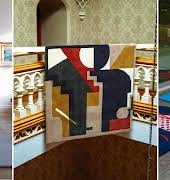
#EndTheStigma: Why Kit Harington’s wellness retreat coverage is very troubling
By Jennifer McShane
30th May 2019
30th May 2019
Stigma is a significant problem for people who experience mental health conditions. As news emerged yesterday that actor and Game of Thrones star Kit Harington had checked into a wellness retreat to deal with personal issues, some media coverage mocked, rather than praised him for seeking help and support. The stigma around mental illness will always remain if this continues, says Jennifer McShane
When it comes to mental health coverage in the news, two sides are offered. The first is the outpouring of praise, commending the individual for speaking out about a topic which still carries with it a shameful stigma and the other mocks, usually with ‘timelines’ of how and when the issues could have possibly started – alongside ‘signs’ that were visible well before the breaking story surfaced. Just using a close ‘source’ and a few random photographs, naturally. The latter was the way a number of tabloids chose to write about Game of Thrones actor Kit Harington decision to enter a wellness facility to deal with some personal matters.
“Kit has decided to utilise this break in his schedule as an opportunity to spend some time at a wellness retreat to work on some personal issues,” Harington’s representative said in a statement to Reuters, with a source telling Page Six that he’s being treated “predominantly for stress and exhaustion and also alcohol.”
Related: ‘Those things don’t ever go away’: Why Keanu Reeves opening up about grief is important
“Kit Harington’s battle with booze – and the Game of Thrones Twist that sent him spiralling!” shouted one headline. “Everything Kit Harington Has Said About Struggling with Game of Thrones Fame,” said another, focusing on his struggles as opposed to the fact that he has sought help.
Words matter. Quite a few opting to use the word ‘rehab’ in tabloid splashes only adds to a demeaning narrative – you rarely see it used as a word with positive context. If we don’t change the way we speak at the most basic level when it comes to mental health, real tangible change we will never see.
This carried over to social media where some began making jokes that his struggles with mental health are to do with the show’s divisive ending or telling him to “grow a pair,” according to one tweet.
If you’re making fun of Kit Harington for checking into rehab, you’re the real joke. Saying “I guess the ending was that bad” isn’t funny. He’s a real person with real issues and he chose to get help. Don’t fuel the misperceptions about mental health for the sake of a joke.
— Chris Eckstine (@ChrisEckstine) May 28, 2019
Some were vocal about shutting this down, but the fact remains that everything about this side of the coverage is problematic – it is nothing more than a stigma enabler. It seeks to isolate and ostracize the individual at a time when they need the most support. In the context of mental health, it usually involves the use of negative labels to identify people as different. “This results in the person feeling devalued and may lead them to isolate themselves and conceal their mental health difficulty,” according to the See Change campaign, which aims to help end mental health stigmatisation in Ireland.
Suffering in silence
So why are so many still advocating that men are somehow lesser for opening up when it comes to mental health? Multiple studies have shown that men in, particular, have difficulty opening in this way. This includes elevated rates of suicide – they account for eight out of 10 suicides in Ireland – and substance abuse, as well as low rates of use when it comes to availing of mental health services.
Praise and positivity are what Kit Harington deserves. He need have said nothing. But even releasing the statement is his way of raising awareness of rejecting a fear of judgment. The only people who should “grow a pair” are those who seek to shame him for having the courage to take action when stigma sees it that so many suffer in silence.
Main photograph: @Editor__Choice























